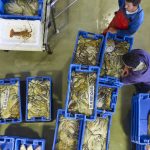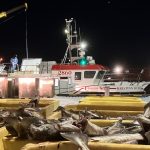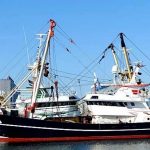The North Sea Regional Advisory Council (NSRAC) has stated its position on discards ahead of a high-level political summit convened by European Commissioner for maritime affairs and fisheries Maria Damanaki.
The RAC’s Demersal Working Group met to discuss the issue in Edinburgh and said afterwards that the NSRAC is totally committed to reducing discards.
It has already produced a substantial piece of advice for the EC on how this should be achieved in the context of the mixed demersal fisheries in the North Sea.
NSRAC chairman, Niels Wichmann, said: “We are very concerned to avoid the kind of knee-jerk political reaction to recent media attention on discards that, from experience, invariably produces a mess. Some of the worst legislation on the CFP statute book was created in this way.
“Our experience of the EU Cod Management Plan, and from other countries, is that effort control, days at sea restrictions, is not a solution to the problem of discards.
“A simple ban may produce good headlines for a few days but would not in itself achieve the desired result.”
“It is important to stress that substantial progress in reducing discards has already been achieved by different projects in diverse fisheries.”
The NSRAC is itself preparing a comprehensive list of discard reduction projects throughout member states to demonstrate their extent and diversity
“The key is that these measures are tailored to the specific conditions in those fisheries and have the active involvement of the fishers concerned,” added Mr Wichmann.
“The priority must be to continue this progress until we have achieved fully documented, low-discard fisheries across the board.
“This is not the time to revert to a top-down approach when the whole thrust of CFP reform is in the opposite direction for the simple reason that top-down hasn’t worked.”
Even where discard bans are in place, as in Norway, it has by no means resulted in the elimination of discards.
The NSRAC believes progress will be made by building on existing approaches which have already delivered significant discard reductions.
Mr Wichmann said there are different reasons for discards in different fisheries and progress is made by tailoring solutions to take these into account.
RACs are the formal channel for stakeholders to provide suggestions and advice to the EC and the Council of Ministers and Member States on fishing in Europe.
The NSRAC is comprised of fishing industry and other stakeholders, including environmental NGOs, anglers, a woman’s network and trade unions.
The Regional Advisory Councils are a key element of the 2002 reform of the Common Fisheries Policy (CFP).
They aim for better engagement of the people the policy affects and for more regionally-focused fisheries management.








